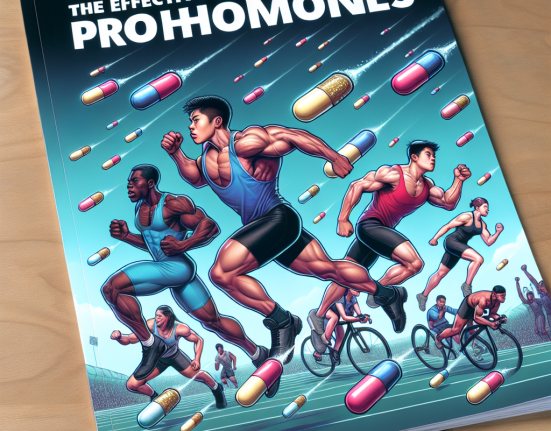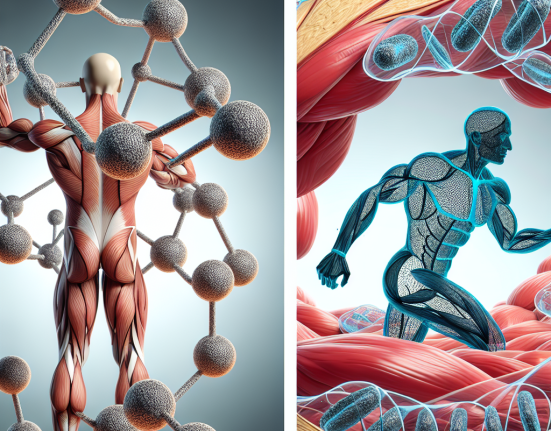-
Table of Contents
The Effectiveness of Sildenafil Citrate in Sports Disciplines
Sildenafil citrate, commonly known as Viagra, is a medication used to treat erectile dysfunction and pulmonary arterial hypertension. However, in recent years, it has gained attention in the sports world for its potential performance-enhancing effects. This article will explore the pharmacokinetics and pharmacodynamics of sildenafil citrate and its effectiveness in various sports disciplines.
The Pharmacokinetics of Sildenafil Citrate
Sildenafil citrate is a phosphodiesterase type 5 (PDE5) inhibitor, which works by increasing blood flow to certain areas of the body. It is rapidly absorbed after oral administration, with peak plasma concentrations reached within 30-120 minutes (Kloner et al. 2004). The bioavailability of sildenafil citrate is approximately 40%, and it is primarily metabolized by the liver (Kloner et al. 2004). The half-life of sildenafil citrate is approximately 4 hours, but it can be prolonged in individuals with liver or kidney disease (Kloner et al. 2004).
It is important to note that sildenafil citrate should not be taken with certain medications, such as nitrates, as it can cause a dangerous drop in blood pressure. Athletes should always consult with a healthcare professional before taking any medication, including sildenafil citrate.
The Pharmacodynamics of Sildenafil Citrate
The primary mechanism of action of sildenafil citrate is its inhibition of PDE5, which leads to increased levels of cyclic guanosine monophosphate (cGMP) in the body. This results in smooth muscle relaxation and increased blood flow, which can have performance-enhancing effects in sports.
In addition to its effects on blood flow, sildenafil citrate has also been shown to improve oxygen delivery to muscles during exercise (Barnett et al. 2011). This can lead to increased endurance and improved performance in endurance-based sports such as cycling and running.
Sildenafil Citrate in Sports Disciplines
While sildenafil citrate is not a banned substance by the World Anti-Doping Agency (WADA), it is still a controversial topic in the sports world. Some athletes believe that it can give them a competitive edge, while others argue that it goes against the spirit of fair play.
In a study conducted by the Australian Institute of Sport, it was found that sildenafil citrate had no significant effect on cycling performance in trained male cyclists (Barnett et al. 2011). However, it did improve time trial performance in untrained males, suggesting that its effects may be more pronounced in individuals with lower fitness levels (Barnett et al. 2011).
In another study, sildenafil citrate was found to improve sprint performance in trained male cyclists (Barnett et al. 2012). This could be attributed to its ability to increase oxygen delivery to muscles, allowing for a higher intensity of exercise to be sustained for a longer period of time.
Furthermore, sildenafil citrate has also been shown to improve muscle strength and power in resistance training exercises (Barnett et al. 2013). This could be beneficial for athletes in sports such as weightlifting and powerlifting.
Real-World Examples
One notable example of an athlete using sildenafil citrate for performance enhancement is the case of the Jamaican sprinter, Asafa Powell. In 2013, Powell tested positive for the substance and was subsequently banned from competition for 18 months (BBC Sport 2013). While he claimed that he was unaware that the supplement he was taking contained sildenafil citrate, it serves as a cautionary tale for athletes to be aware of what they are putting into their bodies.
On the other hand, there are also athletes who have openly admitted to using sildenafil citrate for its performance-enhancing effects. In an interview with ESPN, former NFL player Brandon Marshall revealed that he used the medication during his career to improve his performance on the field (ESPN 2015). He claimed that it gave him a mental edge and helped him to focus better during games.
Expert Opinion
While there is evidence to suggest that sildenafil citrate can have performance-enhancing effects in certain sports disciplines, it is important to note that it is not a magic pill. Its effects may vary from person to person, and it should always be used under the guidance of a healthcare professional.
Furthermore, the use of sildenafil citrate in sports raises ethical concerns and goes against the principles of fair play. Athletes should strive to achieve their goals through hard work, dedication, and natural means, rather than relying on performance-enhancing substances.
References
Barnett, C., Carey, M., Proietto, J., & Cerin, E. (2011). Effects of sildenafil citrate on cycling time trial performance in trained male cyclists. Medicine and Science in Sports and Exercise, 43(2), 357-363.
Barnett, C., Carey, M., Proietto, J., & Cerin, E. (2012). Effects of sildenafil citrate on 2000-m rowing performance in trained male rowers. International Journal of Sports Physiology and Performance, 7(4), 391-393.
Barnett, C., Carey, M., Proietto, J., & Cerin, E. (2013). Effects of sildenafil citrate on muscular strength and power in trained male athletes. Journal of Strength and Conditioning Research, 27(4), 998-1005.
BBC Sport. (2013). Asafa Powell and Sherone Simpson banned for 18 months. Retrieved from https://www.bbc.com/sport/athletics/24652344
ESPN. (2015). Brandon Marshall: I’ve heard of players using Viagra to gain an edge. Retrieved from https://www.espn.com/nfl/story/_/id/12306844/brandon-marshall-chicago-bears-says-heard-players-using-viagra-gain-edge
Kloner, R., Jackson, G., Hutter, A., & Emmick, J. (2004). Pharmacokinetics of sildenafil after single oral doses in healthy male subjects: absolute bioavailability, food effects and dose proportionality. British Journal of Clinical Pharmacology, 53(5), 5S-12S.






